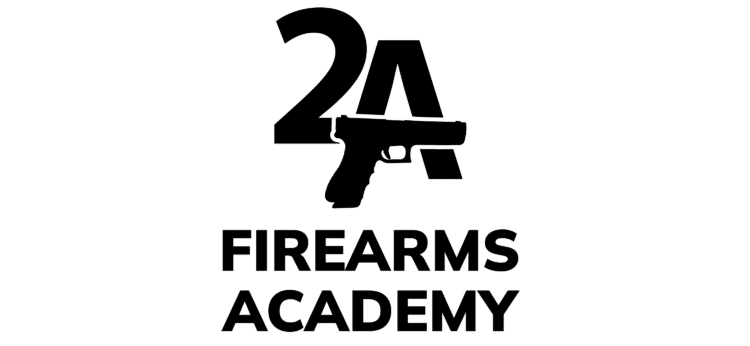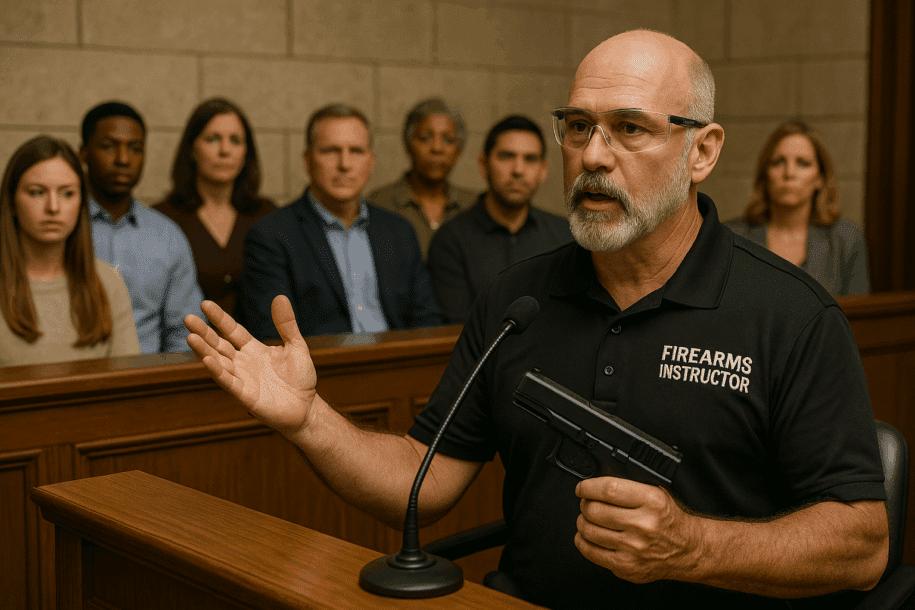Can Your Firearms Training Be Used Against You in Court?
A common question I hear from armed citizens is, “If I ever have to defend myself with a firearm, can my training be used against me in court?” It’s a valid concern—especially in today’s legal climate, where a prosecutor might try to paint you as a vigilante rather than a responsible defender. Some consider it to be a double-edged sword, and really depends on how it’s framed in court. Let’s break down the implications with clarity and purpose.
Yes, Your Training Can Be Brought Up in Court—And That’s a Good Thing
Let’s start with the truth: yes, your firearms training can be introduced in court. But instead of fearing it, you should embrace it—if that training is responsible, ethical, and based on recognized self-defense standards.
A competent defense attorney will often want your training mentioned early in the trial. Why? Because it shows your actions weren’t reckless or impulsive. They were informed, thoughtful, and aligned with how trained, responsible individuals act under pressure.
In short, good training makes you easier to defend.
How Courts Judge You: The “Reasonable Person” Standard
Courts assess your actions using the “reasonable person” standard:
What would a reasonable and prudent person do,
Under the same circumstances,
With the same knowledge you had at the time?
That last part—what you knew—is where your training matters most. It forms the basis for your decision-making in a crisis. With solid training, your attorney can show that your choices were logical, cautious, and rooted in real-world knowledge. Your instructors can testify on your behalf, explaining why your decisions were not only legal, but tactically sound and ethically justified.
How Quality Training Strengthens Your Defense
Training isn’t just about drills—it’s about developing judgment under stress. A well-documented training history helps you:
Prove your response was measured and proportional, not emotional.
Show that you understood the legal limits of force.
Demonstrate that your actions reflected accepted practices among trained defenders.
Reinforce that you did everything possible to avoid conflict before using force.
When jurors hear this from multiple credible sources—you, your instructor, and expert witnesses—it leaves a lasting impression. As the late legal scholar Irving Younger once said, “If a juror hears the same thing from three credible sources, no power on earth can convince them it’s not true.”
Yes, Prosecutors Can Try to Twist It—So Choose Training Wisely
Could a prosecutor try to use your training against you? Absolutely. They may argue you were looking for a fight or eager to use deadly force. That’s why where and how you train matters.
Avoid “tactical fantasy camps” that glorify violence or stage overly aggressive scenarios. Choose instructors who emphasize:
De-escalation
Threat recognition
Legal use of force
Avoiding violence whenever possible
Credible instructors who understand the courtroom are an asset to your defense—not a liability.
What If You’re Not Trained?
Now consider the flip side: what if you have no training?
If you’ve never learned how to handle a firearm properly or understand self-defense law, how can you argue that your actions were reasonable? You can’t. And that opens the door for the prosecution to claim you acted negligently—or worse.
Lack of training leaves you vulnerable. It gives the prosecutor a strong argument that you didn’t know what you were doing—and that your ignorance led to unnecessary harm.
Final Thoughts: Train Smart and Document Everything
Keep detailed records of your training. Save certificates. Take notes. Log your range sessions. If you ever face a courtroom, these records could be your strongest defense.
Ongoing training not only sharpens your skills—it shows a commitment to responsibility. Juries respect those who take the time to learn, prepare, and act lawfully.
Conclusion: Training Isn’t a Risk—It’s Your Legal Lifeline
If you’re ever forced to defend your life, your training won’t just guide your hands—it will shape your legal defense. Make sure that training reflects responsibility, restraint, and readiness.
Train smart. Train legally. Document everything. Your freedom may depend on it.

